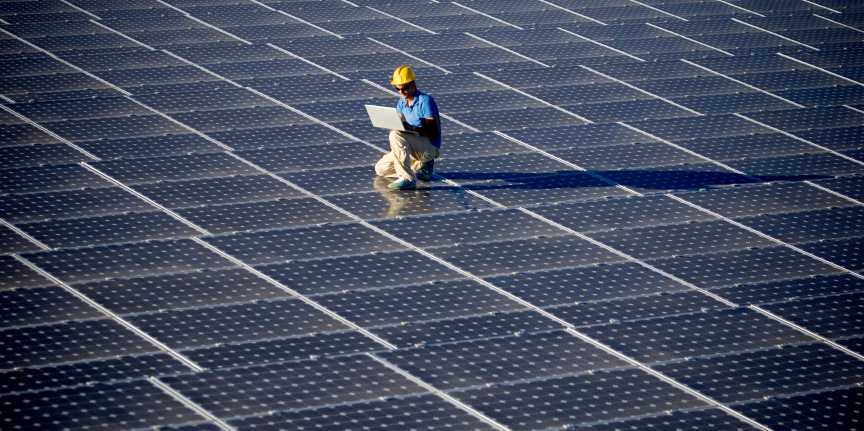Greasing the wheels of change
The IPCC has released the final installment of its three-volume report. The Working Group III component covers the technical, economic, and practical aspects of reducing greenhouse gas emissions. The report offers three broad messages, which together paint a discouraging picture of the present, but offer room to hope for the future.
The first message is that greenhouse gas emissions are accelerating, and will continue to accelerate absent a concerted effort by governments to do something. Between 1970 and 2000, global emissions grew at a fairly constant rate. Between 2000 and 2010, that rate increased, almost entirely a result of economic growth taking place in Asia. That growth has lifted millions of people out of poverty; it hopefully shall, and likely will, continue. So it is essential to decouple that growth from the combustion of fossil fuels. Decoupling has not happened so far, and will probably not happen on its own for quite some time. So some sort of policy intervention is necessary.
Costs are low in the long-run
The second message is that decoupling growth from fossil fuel consumption is technically feasible, and economically benign. First, there are non-fossil sources of energy available that could be scaled up to meet demand. Some countries, notably Germany, are already making headway in doing so. At least in the short run, there are substantial costs associated with this, as our neighbors to the north are experiencing. Second, however, there is a tremendous opportunity for improvements in energy efficiency across all sectors of society, many of which would actually save money.
Taking the two factors together, as well as the cost reductions that occur when technologies become mainstream, the economic costs of decoupling are small. Economic scenarios foresee the global economy growing by between 300% and 900% over the remainder of this century. Eliminating greenhouse gas emissions would reduce this by only a few percentage points.
Multi-pronged strategies needed
The third message is that there is not one single thing that needs to happen for this complete decoupling to take place, but rather many. Even if a global agreement were in place with meaningful national commitments, individual countries would still have to take actions to decouple their own economies. These actions—and many countries are beginning to take them even in the absence of a global agreement—need to address many different factors that make it difficult for individuals, households, and firms to consume less energy, and less fossil fuel in particular. Such factors include the shape of urban infrastructure, the architecture of the electricity grid, and the risks associated with particular kinds of investment. The IPCC report lists dozens of factors, and addressing any one of them means solving a number of separate problems.
Reconciling a variety of goals
We are making bad progress so far at solving the global problem of climate change. Many say that this is because individuals and governments lack the will to solve it. I disagree. First, I believe, we do have the will to solve climate change, but we also have the will to do some other things too, so climate change does not automatically push all else aside, like reducing poverty. Second, solving climate change while also advancing the other things we care about is, simply put, incredibly complicated. With so many different things needing to happen, some in sequence and some in parallel, progress is bound to be slow, even with good intentions all around.
We will, eventually, get there. Time, unfortunately, is tight. One thing that can grease the wheels of change, and allow us to decouple growth from greenhouse gases substantially faster, is continued technological improvement. Many countries have been subsidizing renewable energy technologies, notably wind and solar, to stimulate deployment. That deployment has made an imperceptible impact on global emissions so far, but it has led to a dramatic reduction in costs. We have finally reached a point where these technologies are, at least under the right geographic conditions, an attractive alternative to fossil fuels, even without subsidies. We must do all we can to make such technologies attractive to more and more people in more and more places. Then, people will have their own incentive to put these technologies to use, figuring out how to overcome the barriers, and making fossil fuels a thing of the past.
Further information
Anthony Patt has served as lead author for the Working Group 3 contribution to the Intergovernmental Panel on Climate Change (externe SeiteIPCCcall_made) fifth Assessment Report: Mitigation of Climate Change. The externe SeiteSummary for Policymakerscall_made has been approved on 13 April 2014.

